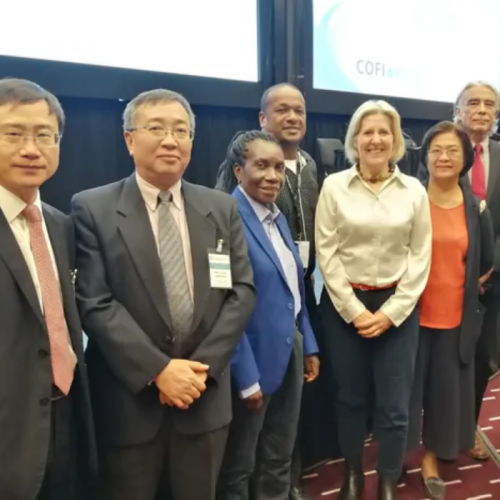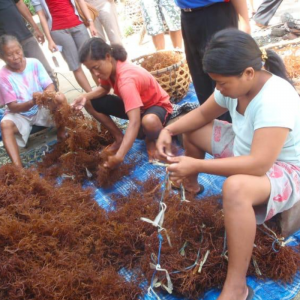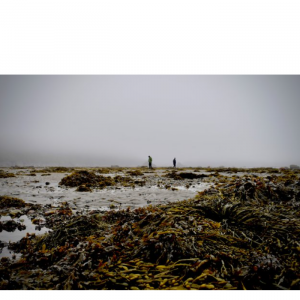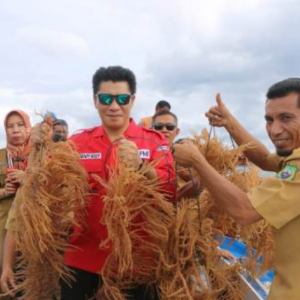
FAO Backs Regulatory Overhaul for Global Seaweed Growers
| Tue, 03 Sep 2019 - 11:42
The call was made after a presentation from Scottish Association for Marine Science(SAMS)
scientist Professor Elizabeth Cottier-Cook and five other international experts
at the event.
The seaweed industry was valued at around US$12 billion in 2017, and supports
millions of families worldwide. Seaweed production grew globally from 13.5
million tonnes in 1995 to 30 million tonnes in 2016; as a food, seaweed is a
source of nutrients, vitamins and omega-3 fatty acids, but it is also used
globally in the food processing industry, as a thickening agent.
Prof Cottier-Cook, who leads the Global Challenges Research
Fund (GCRF) GlobalSeaweedSTAR research
project, told delegates at the meeting how this rapidly expanding industry
faces a number of key challenges including disease and pest outbreaks, which
can lead to whole farms being shut down.
She said governments from around the world had to consider how best to
safeguard the industry.
Following the presentation, key messages from the expert panel included; a call
for the seaweed industry to be scaled up, both at the country and local farm
level, alongside initiatives to address the lack of specific policies and
guidelines for seaweed biosecurity.
Prof Cottier-Cook said: “I am very grateful for the opportunity to appear in
front of the UN FAO sub-committee on aquaculture and to highlight the
importance of the seaweed industry globally.
“It was also extremely pleasing to have had such an enthusiastic response from
the member state representatives and an acknowledgement from the sub-committee
that they were interested in receiving more information on seaweed aquaculture
in future sessions."
Work already undertaken by the GlobalSeaweedSTAR project, a four-year UK
Research and Innovation (UKRI) funded programme to improve the sustainability
of the global seaweed industry was presented at the side event and the team
hopes to work with the FAO to develop a biosecurity action plan for this
industry.
Prof Cottier-Cook, who has previously authored an international policy brief in
association with the United
Nations University on safeguarding the sustainable development
of the seaweed industry, said: “Although, seaweeds have been grown for many
years in Asia, production of seaweed has grown exponentially over the past 30
years and is now increasingly being grown in countries with no tradition of
consuming seaweed for food.
“The recommendation by member states at the Trondheim meeting that ‘aquatic
plants’, which include seaweed, should be included in the development of their
Progressive Management Plan for Aquaculture Biosecurity is a huge step forward
for the industry, which currently suffers from pest and disease outbreaks and
the risks associated with introducing non-native species."
Source : The Fish Site






















